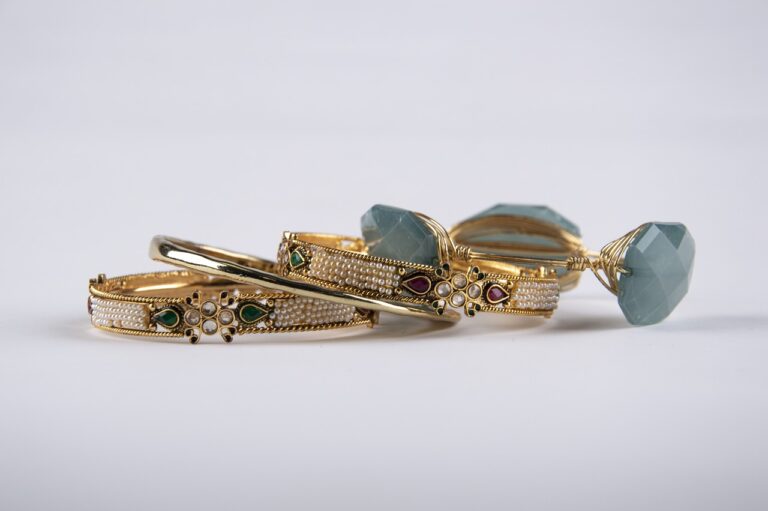The Rise of Conscious Consumerism in Fashion Retail: Cricbet99.win register, Sky 99 exch, Reddy book club
cricbet99.win register, sky 99 exch, reddy book club: The fashion industry has long been criticized for its environmental impact, labor practices, and overall lack of transparency. However, in recent years, there has been a noticeable shift towards conscious consumerism in the world of fashion retail. Consumers are becoming more aware of the social and environmental implications of their purchasing decisions, and they are demanding more from the brands they support.
What is Conscious Consumerism?
Conscious consumerism is the idea that consumers should be mindful of the social and environmental impact of their purchasing decisions. It involves making a deliberate effort to support brands that are committed to sustainability, ethical labor practices, and transparency. Conscious consumers prioritize products that are made ethically, use environmentally friendly materials, and are produced in a way that minimizes harm to people and the planet.
The Rise of Sustainable Fashion Brands
In recent years, there has been a surge in the number of sustainable fashion brands entering the market. These brands are committed to producing clothing and accessories that are environmentally friendly, ethically made, and socially responsible. They often use organic or recycled materials, pay fair wages to their workers, and prioritize transparency in their supply chain.
Consumers are increasingly seeking out these brands, drawn to their commitment to sustainability and ethical practices. As a result, sustainable fashion brands are gaining traction in the industry and are challenging traditional fast fashion retailers. This shift towards sustainability is not only good for the planet and its people, but it is also good for business. As more consumers demand sustainable options, brands that fail to adapt risk being left behind.
The Impact of Fast Fashion
Fast fashion has long been criticized for its negative impact on the environment and labor practices. The fast fashion industry relies on cheap labor and exploitative practices to produce clothing quickly and at low cost. This model leads to high levels of pollution, poor working conditions for garment workers, and a cycle of overconsumption and waste.
However, as consumers become more aware of the impact of fast fashion, they are seeking alternatives that align with their values. Sustainable fashion brands are providing these alternatives, offering consumers a way to shop for clothing that is stylish, affordable, and ethically made.
Transparency in the Supply Chain
One of the key aspects of conscious consumerism in fashion retail is transparency in the supply chain. Consumers want to know where their clothing is coming from, who is making it, and under what conditions. Brands that are transparent about their sourcing and production practices can build trust with consumers and differentiate themselves in a crowded market.
Some brands are going above and beyond to provide transparency in their supply chain. They are sharing information about where their materials come from, how their products are made, and what steps they are taking to minimize their impact on the environment. By being transparent, these brands are not only meeting the demands of conscious consumers but are also setting an example for the industry as a whole.
The Role of Technology
Technology is playing a crucial role in the rise of conscious consumerism in fashion retail. With the rise of social media and e-commerce, consumers have more access to information about brands and their practices than ever before. They can research brands, read reviews, and connect with like-minded consumers to make informed purchasing decisions.
Additionally, technology is enabling brands to track their supply chains more effectively, ensuring that their products are made ethically and sustainably. Blockchain technology, for example, can be used to trace the origins of materials and verify that they are sourced responsibly. By leveraging technology, brands can demonstrate their commitment to transparency and build trust with consumers.
FAQs
Q: What are some ways I can be a more conscious consumer in fashion retail?
A: Look for brands that prioritize sustainability, ethical labor practices, and transparency in their supply chain. Consider buying second-hand or investing in high-quality, timeless pieces that will last for years to come.
Q: How can I support sustainable fashion brands?
A: Research brands that are committed to sustainability and make an effort to support them through your purchasing decisions. Follow them on social media, share their message with others, and advocate for sustainable practices in the fashion industry.
Q: What are some examples of sustainable fashion brands?
A: Some examples of sustainable fashion brands include Patagonia, Eileen Fisher, Reformation, and Everlane. These brands are known for their commitment to sustainability, ethical practices, and transparency in their supply chain.
In conclusion, the rise of conscious consumerism in fashion retail is a positive trend that is reshaping the industry for the better. Consumers are demanding more from the brands they support, and brands are responding by prioritizing sustainability, ethical practices, and transparency. By supporting sustainable fashion brands and making informed purchasing decisions, we can all contribute to a more ethical and sustainable fashion industry.







